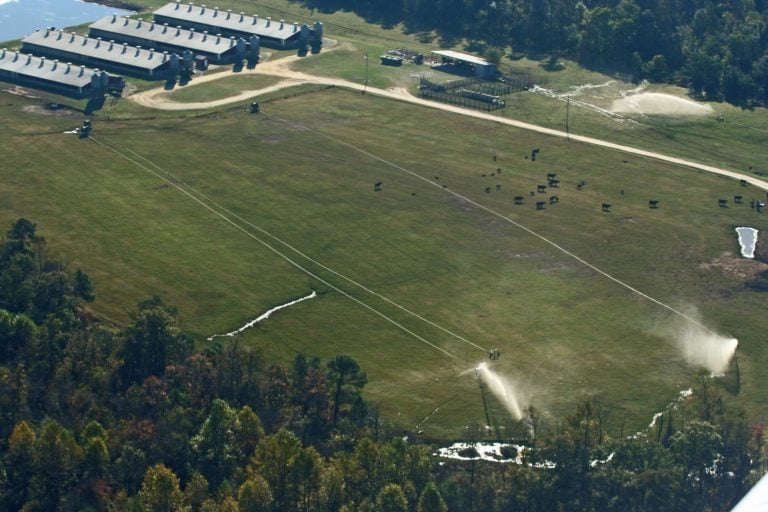Coalition Goes to Court to Protect Communities from Hazardous Pollution Generated by CAFOs
By: Waterkeeper Alliance

EPA’s actions unlawfully deny communities and emergency responders crucial information on pollution from CAFOs
WASHINGTON (April 15, 2015) – Earthjustice is going back to court to force the U.S. Environmental Protection Agency (EPA) to act on a rule finalized in 2008 that illegally exempts industrial meat production operations from federal hazardous substance reporting. The action was taken on behalf of a coalition of environmental, animal welfare and food safety organizations and follows five years of legal limbo, during which time the unlawful rule has remained in effect.
Members of the coalition are The Center for Food Safety, Environmental Integrity Project, The Humane Society of the United States, Sierra Club and Waterkeeper Alliance.
The coalition sued the EPA in 2009 for illegally adopting a rule in 2008 that groundlessly exempts industrial meat production operations from complying with hazardous substance reporting requirements. Those requirements are outlined in the Comprehensive Environmental Response, Compensation and Liability Act (CERCLA) and the Emergency Planning and Community Right-to-Know Act (EPCRA).
The exemptions permit the operations to release untold quantities of pollution – including hydrogen sulfide and ammonia – into the neighboring environment without informing potentially impacted communities or emergency responders.
“People have a right to know that this industry is releasing hazardous substances into the air near their homes, schools, businesses, and communities,” said Kelly Foster, Senior Attorney at Waterkeeper Alliance. “EPA does not have the authority to deny people access to information that is essential to protecting their health and the health of their communities and water resources.”
In the course of the original litigation, which was filed in the United States Court of Appeals for the District of Columbia, the EPA asked the Court to leave the rule in effect and send it back to the agency for prompt reconsideration and suitable amendment. Following the agency’s promise of swift action, the Court granted that request. Almost five years later and despite clear endangerment to public health and the environment, these unlawful exemptions remains in effect.
“The Obama Administration has broken its promise to swiftly reconsider the illegal carve-outs for industrial meat producers from right-to-know laws that apply to all other polluters,” said Eve Gartner, staff attorney at Earthjustice and lead attorney for Petitioners. “Because EPA has admitted that it is not moving forward to revise the exemptions as promised, we have no choice but to ask the Court to reopen this case and strike down the exemptions that are denying communities critical information about pollution from industrial meat production in their area.”
“EPA’s illegal rule is keeping rural communities in the dark about the dangerous air pollution they’re being exposed to, and we’re asking the court to require a fix to this unconscionable situation without further delay,” said Tarah Heinzen, staff attorney for plaintiff Environmental Integrity Project.
Exempting hazardous substance releases from CERCLA and EPCRA has significant consequences for communities near industrial meat production operations. Ammonia and hydrogen sulfide are released in significant amounts when livestock waste decomposes, and can cause respiratory illness, cardiovascular effects, neurological damage and even death. EPA’s actions in failing to address these illegal exemptions demonstrate an indifference to public health, safety and community welfare.
“The new grow-out meat production facilities are being built at inappropriate locations in our communities,” said Mr. Terry Marshall, North Carolina resident whose home is near an industrial poultry operation. “We are seeing these factories spring up near our schools, state and local parks, churches and in already established residential areas. The public health issues caused by these facilities are not being addressed. We need change.”
Contacts:
Tina Posterli, Waterkeeper Alliance, [email protected], 516-526-9371